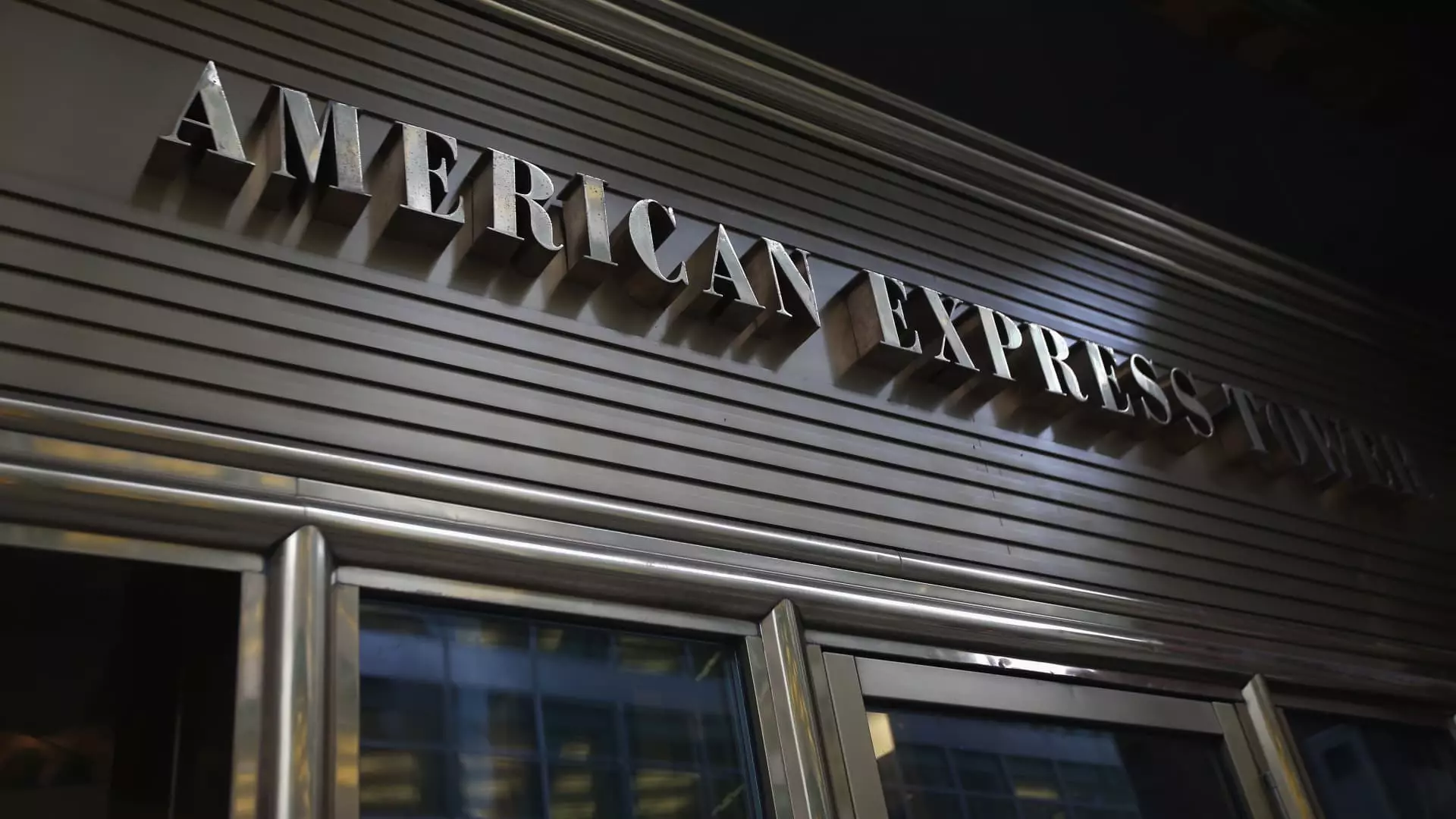American Express’s latest quarterly report presents a striking contrast to the noise of economic instability that often dominates financial discussions. While multiple sectors face the bleak specter of recession spurred by Trump’s tariff policies and declining stock markets, affluent cardmembers of AmEx are displaying an unwavering commitment to spending. The Chief Financial Officer, Christophe Le Caillec, revealed that transaction volumes for the first quarter rose significantly—showing a pulse of vibrancy in an economy otherwise fraught with anxiety.
This resilience is not merely comforting for AmEx; it reflects the broader pattern among the wealthier demographic, showcasing an intriguing dichotomy in consumer behavior. While concerns about tariffs loom large, those with disposable income appear largely insulated. This observation raises questions about economic stratification and whether privileges of the affluent cushion them from wider financial repercussions.
Generational Splits in Spending Trends
Digging deeper, the report indicates a generational divergence in spending habits. Millennial and Gen Z cardholders led the charge with a 14% increase in expenditure—a spree that starkly contrasts the cautious approaches of Gen X and Baby Boomers, who posted spend increases of 5% and 1%, respectively. This trend reveals an essential insight: younger consumers prioritize experiences over material goods, often leading to increased dining and entertainment expenditures.
However, the cautiousness exhibited by older generations hints at a palpable fear of impending financial downturns, echoing concerns that tariffs might drive prices upwards and bring about further economic disarray. If millennials and Gen Z are indeed driving growth, it shows not only their inclination to “live for today” but also sends out a loud message about the need for businesses and economic policies to cater to the evolving preferences of a younger, more adventurous customer base.
The Unshakeable Indicator: Restaurant Spending
What is even more revealing is the significant uptick in restaurant spending, cited by Le Caillec as a “good indicator” of customer confidence. With an 8% increase in this discretionary category, it becomes evident that fine dining is not merely a luxury but a lifeline when gauging economic health. Eating out, by nature, is a spontaneous choice that cannot be easily deferred, providing a telling sign of the general mood among cardmembers.
Yet, while restaurant spending thrives, AmEx’s operations are not devoid of challenges, particularly concerning airline transactions, which exhibited much slower growth. This discrepancy could serve as a reminder that even in resilient sectors, there exist pockets of vulnerability influenced by external factors like fuel prices, consumer sentiment, and economic forecasts.
In a world where uncertainty reigns supreme, the findings from American Express echo a sentiment that the affluent class continues to thrive, even as storm clouds gather overhead. Their spending behaviors provide a nuanced understanding of economic resilience, marking a clear delineation between different demographics and their reactions to financial pressures. While tariff-induced fears loom large, the unwavering confidence exhibited by younger consumers paints a refreshing picture of hope—the kind that businesses and policymakers must heed as they navigate turbulent waters ahead.


Leave a Reply